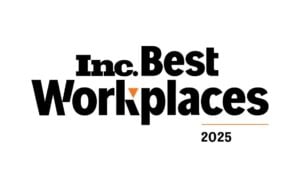This year, our SEO Manager checked out Engage 2020, looking for the latest tips and trends on all things SEO. We use this information to continuously update our bag of tricks so that we always deliver top-notch results for you, making this a win-win situation for all.
We wanted to share with you his notes from the presentations on Schema and Local Results so you’ll find those copied below. The main takeaway from both presentations is that it definitely pays to have as much information as possible available for customers, whether that’s through marking up your site with advanced schema or making sure that you’re utilizing as many local features as possible through Google My Business and others – especially in relation to thinking about how the pandemic has changed user behavior.
Take a look, and give us a shout if you want to talk more about how to improve your online presence.
Table of Contents
Everything You Need to Know About Entities and Schemas, and How It Improves SEO Performance
Speaker: Samson Koletkar, Milestone Inc. | Allison Click, Sprinkles Cupcakes
- Search has moved from keywords to conversations. Voice has changed the landscape
- Your homepage is now Google Search Results because Google answers so many questions on the search page before people even get to your website
- The more rich results you rank for, the better your organic traffic
- Rich results = more than 50% of search result clicks
- Schema is the language of search engines. Look at a webpage and identify everything that can be marked up, This gives a complete picture of your products and services.
- Example from cupcake company Sprinkles: they were looking to provide better local results during the pandemic for people looking for their Sprinkles’ cupcake ATMs. Milestone implemented detailed schema for their pages – results were +838% impressions, +235% clicks, and +$283,407 in revenue
- Out of 1,600 websites analyzed, nearly 40% had schema errors, 60% had no schema at all, 95% had less than 8 schema types identified, and 97% of sites were missing error-free advanced schema
- There is difficulty in implementing error free advanced schema
- If you have even a single error on the page, Google will ignore all of the schema on the page
- Sites with advanced schema outperform other sites by 2x to 3x
- Get as specific as possible with your schema so there are more types of rich information available for search engines to find
- Basic schema is not enough. Error-free advanced schemas are essential to define robust relationships between entities
- Milestone schema customers on average see a 20% to 30% lift in performance
- Schemas change. Websites change Monitoring for errors and opportunities continuously is the only way to improve
- Schema Lifecycle:
- Discovery – crawl, upload
- Architect – find and build the right schema types
- Implement – create, validate, publish
- Measure – rich results, clicks, impressions
- Monitor – errors, updates, opportunities – ask which schemas are giving you the best results and then expand on those types
New Opportunities for Local Search Optimization
Speaker: Benu Aggarwal, Milestone Inc. | Sam Khandelwal, Milestone Inc.
- COVID has changed key behaviors:
- More website visits
- Phone calls are spiking
- Directions going down
- People care more about health & hygiene – businesses need to have info based on pandemic information (masks required, appointment required, staff gets temperature checks, staff wears masks, etc.)
- Important for businesses to respond to reviews within 24 hours, especially negative reviews
- What matters most in local?
- Google search + Google Maps = Google My Business
- Local directories
- Voice assistants (Google Assistant, Alexa, etc.)
- Think beyond UNAP: 30+ attributes now available – get more specific
- Core:
- URL
- Address
- Phone number
- Category
- Map Marker
- Business
- Amenities
- Hours
- Menu & online ordering
- Popular hours
- Description
- Media
- Photos & videos
- Use UX Improvements
- Speed: 90+, AMP pages
- Conversions – remove friction
- Assets: DAM
- ADA: WCAG 2.1
- Pre-click experience should match post-click experience. Have hyper-local content for menus, offers, FAQs, etc.
- Show you have the best possible content for that area
- Maximize local footprint with paid local promotions
- COVID has changed key behaviors:
Top Takeaways
- COVID changing consumer behavior
- Google My Business, reviews, and on-page behaviors top 3 ranking factors
- Think beyond UNAP
- Local is omnichannel
And there you have it! Definitely information worth your attention. If you want to talk about how to take this info and apply it to your online site, schedule a chat. We’d love to help you out!



